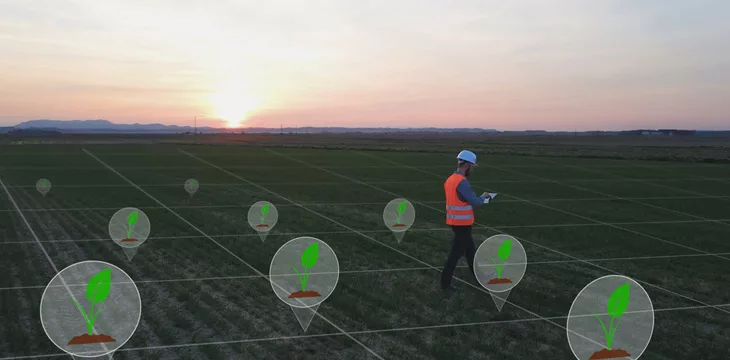
|
Getting your Trinity Audio player ready... |
Jharkhand, a state in eastern India, is leveraging blockchain technology to distribute seeds to farmers in the region, bypassing middlemen.
Jharkhand’s seed distribution plan involves recording the grants made to the state’s farmers on publicly distributed ledgers. Eligible farmers receive a one-time password (OTP) to their mobile phones as an extra layer of authentication to prevent duplicity.
The state’s agriculture secretary, Abu Bakr Siddiqui, disclosed that the blockchain-based system is the first of its kind in India’s agricultural sector, laying the blueprint for other states seeking to rely on the technology.
The system solves several challenges plaguing seed distribution in the region, including the costs incurred from relying on intermediaries for distribution. Siddiqui says the state’s agriculture department saves both cost and time by eliminating middlemen and reaching directly to farmers.
Using blockchain for seed distribution prevents fraud across the supply chain as details of every seed grant are recorded on-chain. Siddiqui points to the immutability of blockchain as a key characteristic for the system to be tamper-proof while still protecting the digital identities of farmers.
The seed distribution system also solves Jharkhand’s problem of tracing farmers due to migration or death, allowing only eligible individuals to apply for seeds.
With the initiative involving handling large volumes of data, a globally scalable blockchain like BSV could greatly help maintain Jharkhand’s project. Information stored on the BSV blockchain is also secured, thanks to its cryptographic algorithm, which could help authorities easily verify data for transparency.
Alongside the seed distribution initiative is the introduction of incentives to dairy farmers designed to increase milk production in the region. Since the scheme’s introduction, milk production has spiked to 250,000 liters per day from 130,000 liters, according to data obtained from milk processing plants in Palamu, Deoghar, and Sahibganj.
Apart from increasing dairy production and improving seed distribution, Jharkhand has made impressive strides in agriculture to become one of India’s leading producers of rice, wheat, and maize.
Supported by blockchain integration and other digital verification methods, Jharkhand has since given out over $57 million in grants to farmers in the state.
Headfirst into blockchain
One year after Finance Minister Nirmala Sitharaman announced plans to increase
blockchain adoption rates by 46%, municipal governments have incorporated the technology into their operations.
Maharashtra, India’s second most populous state, has previously announced a blockchain system to record real estate transactions, while New Delhi has since flagged off a blockchain-based platform for forensics.
To achieve higher adoption rates, several blockchain courses were rolled out for Indian residents designed to deepen the talent pool for international and local Web3 firms.
Watch Dr Mohamed Essaaidi: BSV’s scaling will change governance, banking, agriculture
Recommended for you
Lorem ipsum odor amet, consectetuer adipiscing elit. Elit torquent maximus natoque viverra cursus maximus felis. Auctor commodo aliquet himenaeos fermentum
Lorem ipsum odor amet, consectetuer adipiscing elit. Accumsan mi at at semper libero pretium justo. Dictum parturient conubia turpis interdum

 11-22-2024
11-22-2024


